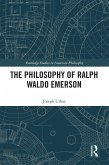"The people are missing" is a constant refrain in Gilles Deleuze and Félix Guattari's writings after the 1975 publication of Kafka: Pour une litterature mineure. With the translation of this work into English (Kafka: Toward a Minor Literature) in 1986, the refrain quickly became a hallmark of political interpretation in the North American academy and was especially applied to the works of minorities and postcolonial writers. However, in the second cinema book, Cinéma 2: L'Image-temps, the refrain is restricted to third-world cinema, in which Deleuze and Guattari locate the conditions of truly postwar political cinema: the absence, even the impossibility, of a people who would constitute its organic community. In this critical reflection, Gregg Lambert traces the "narrowing" of the refrain itself, as well as the premise that the act of art is capable of inventing the conditions of a "people" or a "nation," and asks whether this results only in reducing the positive conditions of art and philosophy in the postmodern period. Lambert offers an unprecedented inquiry into the evolution of Deleuze's hopes for the revolutionary goals of minor literature and the related notion of the missing people in the conjuncture of contemporary critical theory.
Dieser Download kann aus rechtlichen Gründen nur mit Rechnungsadresse in A, B, BG, CY, CZ, D, DK, EW, E, FIN, F, GR, HR, H, IRL, I, LT, L, LR, M, NL, PL, P, R, S, SLO, SK ausgeliefert werden.









